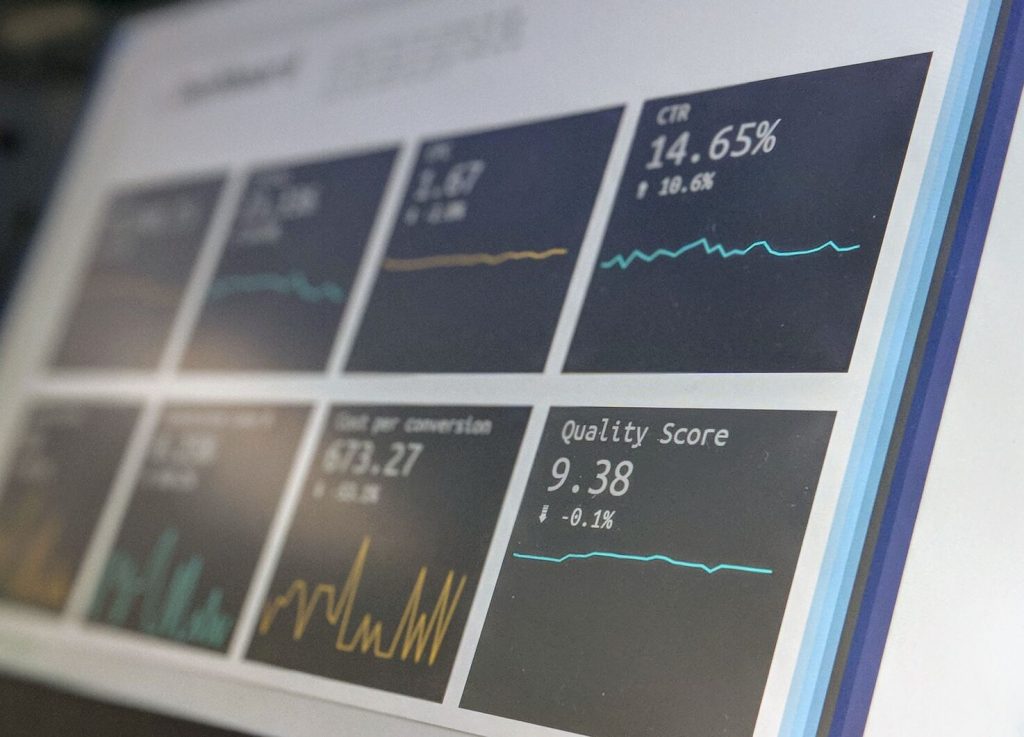If you want to become a business analyst in Australia, this guide will provide you with essential insights and steps to help you navigate the path to success. From acquiring the necessary skills to exploring job prospects, we’ll outline the key factors to consider on your journey to becoming a business analyst in the Australian market.
Tasks and responsibilities for a business analyst
What does a business analyst do? Business analyst job description can vary depending on the organization and specific project but generally include:
- Requirement Gathering and Analysis: Collaborate with stakeholders to understand their needs, document requirements, and analyze them to ensure they align with business objectives.
- Data Analysis: Collecting and analyzing data to identify trends, patterns, and insights that drive business decisions and strategies.
- Process Mapping and Improvement: Examining existing business processes, identifying areas for improvement, and proposing streamlined and efficient workflows.
- Solution Design: Developing and presenting solutions, including system enhancements, process changes, or technology implementations, to address business challenges.
- Stakeholder Management: Facilitating effective communication between stakeholders, such as business users, IT teams, and management, to ensure a clear understanding of requirements and project goals.
- Documentation: Creating comprehensive documentation, such as functional specifications, user stories, and process flows, to guide development teams and ensure proper implementation.
- Testing and Quality Assurance: Collaborating with testing teams to develop test plans, conduct testing, and ensure the delivered solution meets quality standards and user requirements.
- Change Management: Assisting in implementing and adopting new processes or systems by providing training, support, and communication to stakeholders.
- Project Management: Contributing to project planning, monitoring project progress, and ensuring timely project milestones and deliverables delivery.
- Continuous Improvement: Keeping up with industry trends, best practices, and emerging technologies to identify opportunities for continuous improvement within the organization.
These tasks and responsibilities may vary depending on the industry, company size, and specific project requirements.

Job market trends for a business analyst
The job market for business analysts has been consistently strong and continues to show positive trends. Here are a few key job market trends for business analysts:
- Growing Demand: The demand for business analysts has steadily increased due to their crucial role in helping organizations make informed business decisions and drive efficiency. Businesses across various industries recognize the value of data-driven insights and seek skilled business analysts.
- Digital Transformation: With the rapid pace of technological advancements and digital transformation initiatives, businesses rely on business analysts to help them navigate these changes. Business analysts are vital in identifying and implementing technology solutions to improve processes, enhance customer experiences, and achieve digital goals.
- Agile Methodologies: Agile methodologies like Scrum and Kanban have gained significant popularity in project management and software development. Business analysts with experience and knowledge in agile practices are in high demand as they can effectively collaborate with cross-functional teams, gather requirements iteratively, and adapt to changing project needs.
- Data Analytics and AI: The increasing importance of data analytics and artificial intelligence (AI) has created new opportunities for business analysts. Organizations seek professionals who can effectively analyze data, derive actionable insights, and contribute to AI-driven initiatives such as predictive analytics, machine learning, and automation.
- Domain-Specific Expertise: Many industries, such as finance, healthcare, and e-commerce, require business analysts with specialized knowledge in their respective domains. Professionals with industry-specific expertise have a competitive advantage in the job market, as they understand those industries’ unique challenges and requirements.
- Communication and Soft Skills: Besides technical skills, employers emphasize communication and soft skills for business analysts. Strong interpersonal skills, stakeholder management abilities, and the capacity to effectively convey complex information are highly valued in this role.
Overall, the job market for business analysts is promising, with a wide range of industries and
Skills business analysts have
Business analysts possess diverse skills that enable them to excel in their roles. Here are some key skills that business analysts typically have:
- Analytical Skills: Business analysts have a strong ability to analyze complex information, identify patterns, and extract insights from data.
- Communication Skills: Effective communication is crucial for business analysts as they interact with various stakeholders, including business users, IT teams, and management.
- Requirements Gathering and Documentation: Business analysts excel in gathering and documenting project requirements.
- Domain Knowledge: Business analysts often develop expertise in specific industries or domains, such as finance, healthcare, or retail.
- Technical Aptitude: While business analysts may not be software developers or IT specialists, they possess a solid understanding of technology concepts and trends.
- Business Acumen: Business analysts strongly understand business principles and processes.
- Collaboration and Relationship Building: Business analysts work closely with stakeholders from different departments and backgrounds. They build strong working relationships, foster collaboration, and bridge the gap between business and technical teams.
- Problem-Solving and Critical Thinking: Business analysts possess excellent problem-solving and critical-thinking skills.
- Adaptability and Flexibility: Business analysts often work on multiple projects simultaneously, each with its own unique requirements and timelines.
- Continuous Learning: Business analysts embrace a mindset of continuous learning, staying updated on industry trends, emerging technologies, and best practices.
Collectively, these skills enable business analysts to perform their roles effectively, driving business success and delivering value through their analysis, insights, and recommendations.

How to become a business analyst in Australia
To become a business analyst in Australia, you can follow these steps:
- Obtain Relevant Education: While there is no specific degree requirement for becoming a business analyst, having a bachelor’s degree in a related field such as business administration, management, finance, or information technology can be advantageous. Consider pursuing courses or certifications that focus on business analysis methodologies and techniques.
- Gain Work Experience: Employers often prefer candidates with practical experience in business analysis or related roles. Look for entry-level positions in business operations, project coordination, or data analysis to build relevant experience. Seek opportunities to work on projects that involve requirements gathering, process improvement, or data analysis.
- Develop Business Analysis Skills: Focus on developing essential business analysis skills such as requirements elicitation, data analysis, process mapping, and documentation. Familiarize yourself with business analysis frameworks and methodologies like Agile, Scrum, or Six Sigma. Consider enrolling in training programs or workshops that specifically target business analysis skills.
- Obtain Business Analysis Certifications: Earning industry-recognized certifications can enhance your credibility and demonstrate your commitment to the field. Consider certifications like Certified Business Analysis Professional (CBAP) offered by the International Institute of Business Analysis (IIBA) or Agile Certified Practitioner (PMI-ACP) offered by the Project Management Institute (PMI).
- Networking and Professional Development: Attend industry events, conferences, and meetups related to business analysis to network with professionals in the field. Join professional associations such as IIBA or local business analysis groups to connect with like-minded individuals and access valuable resources. Engage in continuous learning by staying updated on industry trends, tools, and best practices.
- Tailor Your Resume and Job Applications: Craft a targeted resume highlighting your relevant skills, education, and work experience. Emphasize your accomplishments in areas such as requirements analysis, process improvement, and stakeholder management. Customize your job applications to align with the specific requirements and responsibilities mentioned in business analyst job postings.
- Prepare for Interviews: Research common business analyst interview questions and prepare thoughtful responses that showcase your skills and experiences. Be prepared to provide examples of how you have successfully gathered requirements, solved problems, and collaborated with stakeholders. Highlight your ability to translate business needs into practical solutions.
- Continuous Learning and Professional Growth: Once you secure a business analyst role, continue to enhance your skills and knowledge through on-the-job learning, training programs, and professional development opportunities. Seek feedback from colleagues and supervisors to identify areas for improvement and work towards expanding your expertise.
Remember that the path to becoming a business analyst may vary depending on your background and experience. It is essential to stay proactive, persistent, and adaptable as you navigate your career in business analysis.
Frequently Asked Questions about BA in Australia
Here are some certifications that are commonly recognized in the business analysis profession: Certified Business Analysis Professional (CBAP), Certification of Capability in Business Analysis (CCBA), Agile Certified Practitioner (PMI-ACP), Professional in Business Analysis (PMI-PBA), Certified Professional for Requirements Engineering (CPRE), Certified Data Management Professional (CDMP)
The first thing to start to become a BA is to Understand the Role: Familiarize yourself with the responsibilities and skills required for a business analyst. Understand how business analysis contributes to organizational success and decision-making processes.
No, the business analyst career is not dying. In fact, the demand for skilled business analysts continues to grow across various industries. In addition, Adopting agile methodologies and digital transformations is on the rise. Business analysts with expertise in agile practices, requirements management, and technology implementation are highly sought after to support these initiatives.

Related posts: